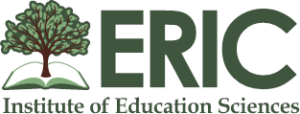Forgiveness Research
 forgiveness and forgiveness education, since 1985. His meticulous validation of his scientific procedures has put him in the forefront of the science of forgiveness. Time magazine has called him “the forgiveness trailblazer.” The Los Angeles Times said Dr. Enright is “the guru of what many are calling a new science of forgiveness.” The Christian Science Monitor called Dr. Enright “the father of forgiveness research.”
forgiveness and forgiveness education, since 1985. His meticulous validation of his scientific procedures has put him in the forefront of the science of forgiveness. Time magazine has called him “the forgiveness trailblazer.” The Los Angeles Times said Dr. Enright is “the guru of what many are calling a new science of forgiveness.” The Christian Science Monitor called Dr. Enright “the father of forgiveness research.”
By publicly sharing all of his research results in more than 100 publications, Dr. Enright helped expand the science of forgiveness into countless areas of study and experimentation. All of his research is done in conjunction with the University of Wisconsin-Madison where Dr. Enright is a Professor of Educational Psychology. You can access his peer-reviewed empirical studies, research abstracts, and published studies below.
![]() In addition to sharing his research results, Dr. Enright has also made available his user-validated forgiveness research tools–most of which are available at no cost. His world-renowned tools include:
In addition to sharing his research results, Dr. Enright has also made available his user-validated forgiveness research tools–most of which are available at no cost. His world-renowned tools include:
- The Enright Forgiveness Inventory for Adults
- The Enright Forgiveness Inventory – 30
- The Enright Forgiveness Inventory for Children
- The Enright Self-Forgiveness Inventory
- The Enright Group Forgiveness Inventory (newly validated and published this year-2021)
You can access all these tools on our Forgiveness Research Tools Page.
Dr. Robert Enright’s Forgiveness Research: Peer-Reviewed Empirical Studies
(Click the research title below to view the full text)

The full text for some of Dr. Enright’s Peer-Reviewed Empirical Studies is available by clicking on the study title listed on this page.
Incest survivors
The forgiveness group became emotionally healthier than the control group after 14 months. Differences between the groups were observed for depression, anxiety, hope, and self-esteem. The results were maintained in a 14-month follow-up.
Substance-dependent clients
The forgiveness group became emotionally healthier than the control group, similar to the above study. The experimental participants need for drugs declined substantially, relative to the control group.
Cardiac patients
Again, the experimental (forgiveness) group became emotionally healthier than the control group. Cardiac disease often involves a tightening of the arteries, especially when people are angry. After experiencing forgiveness therapy, those in the experimental group exhibited better functioning arteries, meaning that patients have a reduced risk of chest pains and sudden death.
Emotionally-abused women
Results are similar to the above studies in terms of emotional health (decreased anxiety, depression, PTSD symptoms, and increased self-esteem).
Terminally-ill, elderly cancer patients
After a 4-week intervention, the forgiveness group showed greater improvement in psychological health (less anger, more hopefulness toward the future) than the control group.
Postabortion men
Following treatment, participants demonstrated a significant gain in forgiveness and significant reductions in anxiety, anger, and grief as compared with controls.
Women with fibromyalgia who were abused in childhood
This recent study revealed that an intervention based on forgiveness offers emotional and medical benefits for women with fibromyalgia who have suffered abuse during childhood.
Forgiveness therapy in a maximum-security correctional institution
This first-of-its-kind randomized clinical trial in a maximum-security facility was published in 2021 and showed strong statistical effects for those in the Forgiveness Therapy group compared to those in the control group.
Forgiveness education in a female correctional institution in South Korea Here is another experimental study in corrections, this time with adolescent females in South Korea. Again, we see that the forgiveness intervention was statistically stronger in enhancing psychological well-being than the treatment-as-usual approach in the institution.
Forgiveness education in the workplace
This ground-breaking study was the hallmark research demonstrating the positive role forgiveness can play in reducing anger, resentment, and the desire for revenge among those coping with workplace injustice.
Forgiveness postvention with a survivor of suicide following a loved one suicide: A case study
This study examined the process of the changes of one survivor of suicide following a loved one’s suicide experienced during the postvention.
Trial of a forgiveness intervention on acid attack victims in Pakistan
This 2020 study examined the effects of an Enright forgiveness intervention for acid attack victims in Pakistan. Posttreatment, the forgiveness intervention group showed greater improvement in hope, anger, anxiety, and depression compared with the “treatment-as-usual control group.
Forgiveness therapy to build hope and reduce anxiety and depression in battered women in Pakistan
This 2025 publication examined the effects of a forgiveness intervention for women in Pakistan who were abused in their marriages. Results showed that the experimental group had significant improvements in depression, anxiety, anger, hope and forgiveness compared to the control group.
At-risk middle school students in Wisconsin
Those in the experimental group not only improved more in emotional health than those in the control group, but also improved more in academic achievement than the control counterparts.
At-risk female adolescents in Korea
This study focuses on Korean students who have been bullied and who bully. Those in the experimental group not only improved more in emotional health than those in the control groups but also improved more in academic performance and in their behavior (less aggression and delinquency).
Primary grade students in Milwaukee, Wisconsin
Those in the experimental group were less angry than those in the control group.
Primary grade students in Belfast, Northern Ireland
Those in the experimental group were less angry and depressed and more forgiving than those in the control group.
Parents of students in Belfast, Northern Ireland
Parents in the test group improved statistically (the parents improved) as they taught forgiveness to their children.
Eighth grade students in an urban Midwestern City
This 2014 study compares forgiveness education using pen-pal and journaling activities across two groups of socially and culturally diverse youth. The groups improved on both forgiveness and prejudice. The pattern of outcomes was different for the African American participants than for the European American participants.
Eighth grade students in Iran
This 2020 study investigated the effectiveness of a Forgiveness Education Program on reducing anger and ethnic prejudice and improving forgiveness in 224 eighth grade Iranian students in three provinces: Tehran, Eastern Azerbaijan, and Kurdistan. The experimental group was higher in forgiveness and lower in ethnic prejudice, state anger, trait anger, and anger ex-pression compared to the control group.
33 Years of Prolific Research
 To get an idea of the variety of research work he has done during his 40+ year career in psychology (33+ years focusing exclusively on forgiveness and forgiveness education), here are abstracts of 34 of Dr. Enright’s research studies. Among the more than 110 professional journal articles, monographs and tracts Dr. Enright has authored or co-authored, these 34 were all peer-reviewed and published. The abstracts, provided by ERIC Institute of Education Sciences, date back to 1975 and include studies such as these:
To get an idea of the variety of research work he has done during his 40+ year career in psychology (33+ years focusing exclusively on forgiveness and forgiveness education), here are abstracts of 34 of Dr. Enright’s research studies. Among the more than 110 professional journal articles, monographs and tracts Dr. Enright has authored or co-authored, these 34 were all peer-reviewed and published. The abstracts, provided by ERIC Institute of Education Sciences, date back to 1975 and include studies such as these:
- The Adolescent as Forgiver (1989)
- Interpersonal Forgiveness within the Helping Professions: An Attempt to Resolve Differences of Opinion (1992)
- Counseling within the Forgiveness Triad: On Forgiving, Receiving Forgiveness, and Self-Forgiveness (1996)
- Fathers’ Forgiveness as a Moderator between Perceived Unfair Treatment by a Family of Origin Member and Anger with Own Children (2009)
- Initial Validation of the Unfolding Forgiveness Process in a Natural Environment (2011)
- View a list of all 34 abstracts
For a comprehensive list of books, journal articles, and other materials, here is a Collection of Dr. Enright’s Forgiveness Research Studies.
Learn More: “About the International Forgiveness Institute”
Become a “Peace Builder” by signing The Forgiveness Pledge



